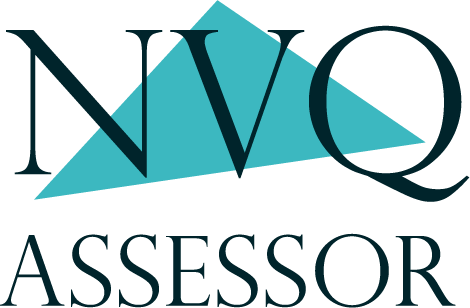As an experienced Health and Social Care worker, you are accustomed to improving the lives of other people. Now you wish to carry this on by becoming an NVQ Assessor and assess the next generation of Health and Social Care learners. After combing through countless Health and Social Care Assessor job postings and paired with our own industry knowledge. We bring you a comprehensive guide on ‘How to Become an NVQ Assessor in Health and Social Care’.
UNDERSTAND YOUR ROLE AND RESPONSIBILITIES.
Let’s first clarify what exactly an NVQ Assessor is. Specifically in Health and Social Care. This way, you will have a clear and realistic understanding of the job.
NVQ or National Vocational Qualification, is by definition, a “work-based qualification that recognises the skills and knowledge a person needs to do a job.” (SVT). This is what you must assess.
Typically, a Health and Social Care learner will be working towards a Level 2, 3, 4 or 5 qualification, delivered through a course or apprenticeship. As an Assessor you will provide support and guidance whilst assessing their abilities to complete this. Therefore, it is required that you are occupationally competent or qualified to an equal level or higher than what your learner is trying to achieve.
We have comprised a shortlist of the standard duties you will carry out over the course of your new career;
- Observe and assess learners in their workplace / learning environment (face-to-face or online via video conference software)
- Examine candidate portfolios of evidence
- Offer advice and feedback if standards are not met
- Keep up-to-date records of the learner’s progress; in accordance with the requirements stipulated by the NVQ Awarding Body
- Participate in meetings with fellow Assessors
- Build a working relationship with the training staff and candidates line managers
- Question learners about how they would deal with non-standard situations in the working environment
- Sign off the NVQ when all the requirements have been met
If you are unfamiliar with some of what was mentioned above, do not worry. This will all be covered in your Assessor qualification training.
THE EASIEST METHOD TO BECOME AN NVQ ASSESSOR.
Our current recommendation is the ‘Level 3 Certificate In Assessing Vocational Achievement’ (or CAVA). Upon completion of the course, you become qualified to assess others in your area of occupational competence within the workplace and learning environments.
Comprised of three units, the course has a Guided Learning Hours set at 54. If you can spare an hour a day, in a little over a month and a half you would have completed it.
- Unit 1: ‘Understanding Principles and Practices of Assessment’
- Unit 2: ‘Assess Occupational Competence in the Work Environment’
- Unit 3: ‘Assess Vocational Skills, Knowledge and Understanding’
However, we want to inform you about a trap we see people fall into time and time again. As a part of the course curriculum, you must assess learners in their workplace. Do not presume the training company you choose to do your course with will provide the learners. It is not their responsibility to find the learners, but sadly yours.

We have provided all the information we could. From this point on the ball is in your court. If you need further guidance, you can email us at; hello@nvqassessor.org.uk, or reach out to us through our social channels.
NEWSLETTER
Weekly Assessor Jobs, Blog Posts and Exclusive Content straight to your inbox.
Welcome!

As an experienced Health and Social Care worker, you are accustomed to improving the lives of other people. Now you wish to carry this on by becoming an NVQ Assessor and assess the next generation of Health and Social Care learners. After combing through countless Health and Social Care Assessor job postings and paired with our own industry knowledge. We bring you a comprehensive guide on ‘How to Become an NVQ Assessor in Health and Social Care’.
UNDERSTAND YOUR ROLE AND RESPONSIBILITIES.
Let’s first clarify what exactly an NVQ Assessor is. Specifically in Health and Social Care. This way, you will have a clear and realistic understanding of the job.
NVQ or National Vocational Qualification, is by definition, a “work-based qualification that recognises the skills and knowledge a person needs to do a job.” (SVT). This is what you must assess.
Typically, a Health and Social Care learner will be working towards a Level 2, 3, 4 or 5 qualification, delivered through a course or apprenticeship. As an Assessor you will provide support and guidance whilst assessing their abilities to complete this. Therefore, it is required that you are occupationally competent or qualified to an equal level or higher than what your learner is trying to achieve.
We have comprised a shortlist of the standard duties you will carry out over the course of your new career;
- Observe and assess learners in their workplace / learning environment (face-to-face or online via video conference software)
- Examine candidate portfolios of evidence
- Offer advice and feedback if standards are not met
- Keep up-to-date records of the learner’s progress; in accordance with the requirements stipulated by the NVQ Awarding Body
- Participate in meetings with fellow Assessors
- Build a working relationship with the training staff and candidates line managers
- Question learners about how they would deal with non-standard situations in the working environment
- Sign off the NVQ when all the requirements have been met
If you are unfamiliar with some of what was mentioned above, do not worry. This will all be covered in your Assessor qualification training.

THE EASIEST METHOD TO BECOME AN NVQ ASSESSOR.
Our current recommendation is the ‘Level 3 Certificate In Assessing Vocational Achievement’ (or CAVA). Upon completion of the course, you become qualified to assess others in your area of occupational competence within the workplace and learning environments.
Comprised of three units, the course has a Guided Learning Hours set at 54. If you can spare an hour a day, in a little over a month and a half you would have completed it.
- Unit 1: ‘Understanding Principles and Practices of Assessment’
- Unit 2: ‘Assess Occupational Competence in the Work Environment’
- Unit 3: ‘Assess Vocational Skills, Knowledge and Understanding’
However, we want to inform you about a trap we see people fall into time and time again. As a part of the course curriculum, you must assess learners in their workplace. Do not presume the training company you choose to do your course with will provide the learners. It is not their responsibility to find the learners, but sadly yours.
If the last statement left you with some trust issues, do not worry. There are some amazing Independent Training Providers who do provide learners as a part of the course. You just have to look. One of which is Brooks and Kirk, who you can find out more about HERE.
We have provided all the information we could. From this point on the ball is in your court. If you need further guidance, you can email us at; hello@nvqassessor.org.uk, or reach out to us through our social channels.
NEWSLETTER
Weekly Assessor Jobs, Blog Posts and Exclusive Content straight to your inbox.
Welcome!

IQA Award and Lead IQA – What’s the difference?
By Katherine Little Published 7th Mar 2023 | Blog The world of education and training is full of acronyms and abbreviations that can be confusing to navigate. Two such terms are IQA Award and Lead IQA qualification. While these two terms may sound similar, they actually refer to two distinct roles within the quality assurance […]

Becoming a Hospitality Assessor
By Katherine Little Published 27th Feb 2023 | Blog The hospitality industry is one of the fastest-growing industries in the world, with a wide range of roles and opportunities. If you’re passionate about this field and enjoy helping others, becoming a hospitality assessor could be the perfect career choice for you. In this article, we’ll […]

Your Ultimate Guide to Quality Assurance: IQA & EQA
By Katherine Little Published 9th Feb 2023 | Blog Discover the Difference Between Internal and External Quality Assurance! Quality Assurance is all about making sure that products and services are the best they can be, avoiding problems, and improving them continuously. But did you know that there are two different methods of Quality Assurance – […]

Roles and Responsibilities of an Assessor
By Katherine Little Published 3rd Feb 2023 | Blog An assessor is a professional who is responsible for evaluating the skills, knowledge, and abilities of individuals in a particular field. The role of an assessor is vital in ensuring that the right training and development opportunities are provided to individuals and that their skills are […]





